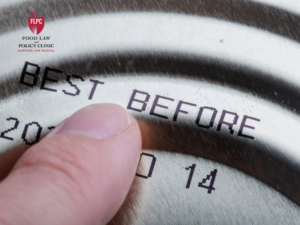This blog is cross-posted from the Harvard Law School Office of Clinical and Pro Bono Programs blog.
By Alexander Leone, J.D. ’16
The Food Law and Policy Clinic is renowned for its groundbreaking work on a variety of issues, including a report it released with the Natural Resources Defense Council on the staggering amount of food we waste in the United States. As someone who has been interested in food since college—and in the countless ways it affects both body and mind and our natural world—the Clinic was on my radar even before I chose to attend Harvard Law School.

Alexander Leone, J.D. ’16
During my time in the Clinic, I was fortunate to have the opportunity to work on two projects that mirrored perfectly my deepest food policy concerns: the ways in which our food system affects, or disserves, society’s most vulnerable; and how our food production practices affect, or destroy, the environment.
First, I worked with an attorney and fellow student to draft a letter to federal legislators on what standards should govern what millions of children, particularly low-income children, eat for their school meals. That letter ultimately became a Clinic policy brief, which “urges Congress to continue progress towards making nutritious, healthy, and delicious school meals available to all children.” Second, I analyzed novel ways in which the tort system could be used to deter the overuse of antibiotics in animal agriculture, a practice that has been linked to the antibiotic resistance crisis that threatens the future of modern medicine.
My projects not only developed my research and writing skills, but enlightened me as to different ways in which to research and write. Contacting and conference calling with a variety of different stakeholders in the legislative process taught me perspectives that I wouldn’t find in a case book. The need to use creativity and analogy to craft arguments at the frontiers of existing legal doctrine sharpened my intellect in a manner unlike a traditional law school class. And I have hope that the efforts of the Clinic will concretely affect food policy—perhaps, for example, through persuasion of lawmakers who will determine what millions of children will be eating during school.
The Clinic also broadened my horizons at Harvard Law School: It led directly to my participation as president of the Harvard Food Law Society. The Clinic sharpened my knowledge of American food law and policy and prepared me to lead an organization that, primarily through educational talks and its annual conference, seeks to advance food justice in our community and society.
————–
The views reflected in this blog are those of the individual authors and do not necessarily represent those of the Center for Health Law & Policy Innovation or Harvard Law School. This blog is solely informational in nature, and not intended as a substitute for competent legal advice from a licensed and retained attorney in your state or country.

Health Law & Policy, Commentary
Cuts to the Federal Workforce and Medicaid: What’s Happening and What Can Advocates Do? – Health Care in Motion
March 12, 2025